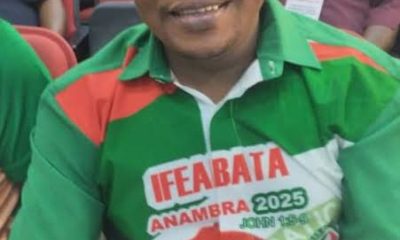Opinion
GHANA, RAISING THE BAR OF DEMOCRACY IN AFRICA
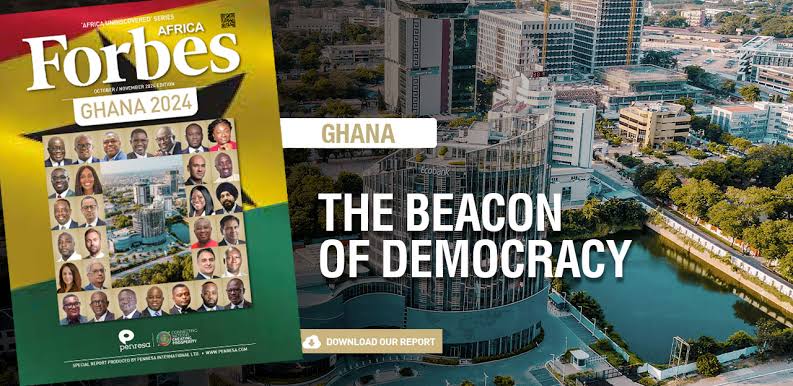
BY BOLAJI AFOLABI
The out-going year has being a special one; variously described, and decorated with flowing and fitting epaulettes. To many people, 2024 is a year of elections. As though planned, about four-dozen countries in Europe, America, Asia, and the Middle East conducted national and regional elections into various legislative and presidential positions. Elections held in the United States of America; Britain; Portugal; Finland; Uruguay; India; Mexico; Jordan; South Korea; Croatia; and Pakistan. Others included Dominican Republic; Belgium; Austria; Venezuela; Indonesia; Sri Lanka; Syria; North Korea; Romania; Bolivia; and Bangladesh. Less popular, and little known nations including El Salvador; Azerbaijan; Taiwan; Panama; San Marino; Solomon Islands; Bhutan; Palau; Tuvalu; and Mongolia also made the cut.
Africa is not left out. About twelve countries in the continent conducted presidential, legislative or local elections. In Comoros; aptly dubbed small archipelago off Africa’s east coast, President Azali Assoumani; former military officer who staged successful coup in 1999 won fourth-term election into the country’s highest office. The Frelimo Party, and Daniel Chapo won the presidential elections in Mozambique, extending it’s dominance to almost 50 years. In Namibia, the SWAPO party consolidated it’s total grip of power and governance by electing Ms. Netumbo Nandi-Ndaitwah as the country’s first female president. Though Cyril Ramaphosa won re-election as South Africa’s president but his party, the African National Congress (ANC) failed to post outright majority, for the first time since Late Nelson Mandela emerged the “rainbow” country’s president in 1994. The ANC had to form a unity government; coalition with other political parties.
Elsewhere, history was made in Senegal, a country that prides herself as the home of democracy in Africa. Forty-four year old Bassirou Diomaye Faye became president in a largely one-sided elections. By this pace-setting feat, the country’s opposition leader who was released from prison few weeks to the elections, became African’s youngest (democratically elected) president. In Botswana, for the first time in 6 decades, an opposition leader; Duma Gideon Boko was elected as president. The development was a milestone as the country has being governed by one party in about 60 years. President Paul Kagame of Rwanda won with about 100 percent of the votes to extend his foothold for close to 30 years.
The December 7 presidential and parliamentary elections in Ghana was unique in several ways. Regarded as West Africa’s democracy lodestar, the elections emerged as arguably the most predictable since the country transitioned to democratic rule in January 1993. Given the preponderance of economic, social, political, and development challenges, many people in various platforms, and handles had postulated victory for the opposition. Like most countries in Africa, Ghana, the 2nd largest cocoa producer in the world, was battling with pervading inflation; accentuating poverty; spiraling depreciation of the national currency; and escalating indebtedness. Also the nation got stuck with non-ingenious foreign borrowings; multifaceted corruption; disabling unemployment; decapitated infrastructure; illegal, mindless gold mining (famously called “galamsey”); leadership ineptness; and citizens unbelievability in government.
Little wonder at the end of the December 7 elections, a new dawn was opened in Ghana’s democratic odyssey. The National Democratic Congress, (NDC) defeated the New Patriotic Party, (NPP) in both the presidential and parliamentary elections. The NDC’s John Dramani Mahama recorded 6,328,397 (56.55 percent) as against NPP’s Mahamudu Bawumia who polled 4,657,304 (41.61 percent) to emerge as the president-elect. At the parliamentary elections, the NDC won 186, while NPP got 81 out of the 267 results declared so far in the 276-legislative body. The parliamentary result is historic and trail-blazing in many ways. The NDC did not only achieved the threshold of 139 seats to have majority but won 47 seats more, and thus became the first political party to achieve this enviable record. The NDC’s electoral triumph was comprehensive, and overwhelming such that Bawumia of NPP conceded victory while few of the results were just being declared by the country’s Electoral Commission headed by Ms. Jean Adukwei Mensa, who was appointed in July 2018, and allegedly accused of being pro-NPP.
The Ghana’s elections presents remarkable, and inspiring templates. The NDC’s candidate, former Ghana’s vice president (2009 – 2012) became president after the death (while in office) of John Atta Mills in July 2012. Mahama, like Goodluck Jonathan subsequently got elected for a 4-year term in December 2012, when he defeated the out-going president, Nana Akufo-Addo, who was the NPP candidate then. Mahama, by the way lost his re-election aspiration in 2016 to Nana Akufo-Addo. By that defeat, like Jonathan, Mahama became the first and only sitting Ghanian president to lose elections while in office. Mahama, whose late father; Emmanuel Adama Mahama was a former member of parliament, Minister and Adviser in Nkrumah and Liman’s respective government lost again to Nana Akufo-Addo in 2020, still as the NDC candidate.
NDC’s victory meant it avoided the negative honour of being the first party to be in opposition after three consecutive elections. Conversely, it denied the NPP of becoming Ghana’s first party to break the circle of eight years dominance. Thus, since 1992 when Ghana embraced democracy, no political party has won beyond 2 consecutive terms at the country’s presidential election. Bawumia, the 61 year old out-going vice president, and NPP candidate; Head of Nana Akufo-Addo’s Economic Management Team, and former Deputy Governor, Ghana’s Central Bank, arguably becomes the country’s first-sitting number 2 man to lose presidential elections. Mahama’s running mate; Prof. Jane Naana Opoku-Agyemang, who was his former Education Minister made history as the first female vice president of the country. That she was picked as running mate; second time in two consecutive elections, is a measure of Mahama’s confidence in the capacities of the 72 years old retired academic, and his believe, respect for gender inclusivity in governance.
As expected, the thrills and frills of Ghana elections has generated reactions. Across the world, the effects and lessons of the polls keeps reverberating in public discourses within and outside Africa. Given the unique, and salient features and outcomes of the elections, many people in Nigeria have learnt their voices to it. The deluge of comments and opinions are far-reaching and encompassing. From policy makers to politicians, institutions, and individuals, many Nigerians are having “their say” on the matter. While few of the comments are logical, some lacked merit, and many are outrightly deceptive, cynical, and comical. They can be described as ego-tripping, and tongue-foolery.
One is happy that the opposition parties are sounding upbeat, and brimming with confidence that the Ghana-experience can happen in Nigeria in 2027. Few opposition leaders even pontificate that with Ghana’s NDC having similar logo-colour with the PDP, it is hopeful that the umbrella party have realistic chances of re-capturing political power in 2027. It is good to dream but such should be backed with very realistic, and focussed doggedness. Perhaps it is trite to reiterate that election winning goes beyond similarities of logo, and colour. The PDP; being the major opposition party should show the way to others in it’s group.
True Ghana’s presidential and parliamentary elections holds once every 4 years; like Nigeria but can one rightly equate party politics in both countries? On the writer’s first visit to Ghana in 2011, after interaction with different categories of people, it was evidently clear that our neighbors, though smaller in population and geographical size are ahead of our dear country in many ways. The reality is that in Ghana, politics is built on ideologies, and ingrained on members from generation to generation. Dramani’s long history with the NDC, and Nana Akufo-Addo’s stay with the NPP are obvious proofs of the party culture, focus, and discipline in Ghana. Party leaders and members are resolute to swim or sink with their respective parties not minding results of elections. Dramani, since he lost the presidential election to Nana Akufo-Addo in 2016, stayed with the NDC by frontally playing his role as the leader, and face of opposition. Happily, his consistency, reliability, doggedness, and commitment was rewarded by Ghanaians at the December 7 elections.
Do we have a semblance of similitude in Nigeria. Here, it is bad that almost all the political parties do not have known ideologies. Even where they have, are they followed with iron-cast resoluteness and believe? Political parties are mainly, and merely used as special purpose vehicles to gain power, and have access to the perks of office. The common, and easily noticeable feature among majority of our politicians is “jumpology.” They regal in shameless, rudderless, and unprincipled gale of defections from party to party after every election circle. Painfully, this disturbing trend has become normalized since 1999, such that very few politicians have not moved from one divide to the other. Sadly, unlike Ghana, politics here is driven by greed, selfish desires, and personal ambitions; which are most cases inordinate and self-seeking.
True democracy can only thrive where there is credible opposition that can effectively and efficiently check and balance the ruling party. Rather than making juicy comments, and salacious opinions about the reenactment of the Ghana political heroics in Nigeria, politicians should do the needful. In doing this, there must be sincere house-cleaning whence some politicians would have to go upstairs and assume advisory roles in their respective parties. Some would have to “sacrifice” their ambitions to various positions. Many should consciously imbibe the true meaning of politics as service to the people. True party discipline should be enthroned. Without operationalizing these, and more necessary fundamentals, expectations of the Ghana-experience will remain a vaunting ambition, and mirage.
* BOLAJI AFOLABI, a development communications specialist was with the Office of Public Affairs in The Presidency.
Opinion
5G,IoT and AI to boost global GDP by 2030

By Sonny Aragba-Akpore
With Mobile technologies and services now generating around 5.8% of global Gross Domestic Product (GDP) a contribution that amounts to about $6.5 trillion of economic value, there are strong projections that by 2030, this figure will rise to almost $11 trillion, or 8.4% of GDP.
Global System of Mobile Communications Association (GSMA) says much of this will be driven by countries around the world increasingly benefiting from the improvements in productivity and efficiency brought about by the increased take-up of mobile services and digital technologies, including 5G, Internet of Things (IoT) and Artificial Intelligence (AI).
The GSMA recently introduced the 5G Connectivity Index to provide insights into 5G performance in 39 markets in order to encourage informed decision-making.
In terms of Economic Impact,
the GSMA emphasizes the economic benefits of mobile technologies and services, including 5G, projecting that they will contribute significantly to GDP growth by 2030.
“The GSMA provides specific reports and analyses on 5G in different regions, such as Sub-Saharan Africa, Asia ,Middle East among others highlighting the progress and challenges of 5G deployment in specific areas.”
In Sub Saharan Africa for instance with particular attention on Nigeria,South Africa,Egypt,Kenya and Botswana among others some measure of progress in deployment has been recorded.
The rollout of 5G has brought immense benefits across multiple industry sectors, particularly those involving internet of things (IoT) and artificial intelligence (AI) applications in which the real-time transfer of data is crucial.
More broadly, the adoption of 5G is expected to accompany increased data use across the globe, with forecasts anticipating mobile data traffic of over 300 exabytes per month by 2030, more than twice the volume consumed in 2024 according to Statista.
And with a third of global population expected to be covered by this fifth generation (5G) networks ,a technology that has defined new ways of communication by 2025 ,GSMA
says the technology has surpassed growth projections of all times.
“5G subscriptions increased by 163 million during the third quarter 2024 to total 2.1 billion. 5G subscriptions reached close to 2.3 billion by the end of 2024 accounting for more than 25 percent of all global mobile subscriptions.
“4G subscriptions continue to decline as subscribers migrate to 5G” according to GSMA.
As of the first quarter of 2024, there were nearly two billion 5G connections worldwide, with 185 million new additions. This is expected to grow to 7.7 billion by 2028.”
Statistics show that 5G is the fastest-growing mobile broadband technology, reaching 1.5 billion connections by the end of 2023.
It only took four years to reach this number, compared to 10 years for 3G and more than five years for 4G.
“5G is more than a new generation of technologies; it denotes a new era in which connectivity will become increasingly fluid and flexible.5G Networks will adapt to applications and performance will be tailored precisely to the needs of the user” GSMA submits.
By covering one-third of the world’s population , impact on the mobile industry and its customers will be profound according to GSMA.
To deepen the spread of 5G ,GSMA is working closely with the mobile operators pioneering 5G, “by engaging with governments, vertical industries including automotive, financial services, healthcare providers, transport operators, utilities and other industry sectors to develop business cases for 5G.”
And In order to accelerate the growth and spread, many operators are said to be deploying
AI technology as part of an integral part of telecoms operators’ strategic and operational plans.
“Operators are making important advancements in the deployment of AI technology, which is serving as a transformative force shaping the telecoms industry. By deploying autonomous AI-based systems, operators can enhance operational efficiency, customer satisfaction and security, while also creating new revenue opportunities”.
China, South Korea, the United Kingdom, Germany, and the United States are the leading countries with robust 5G coverage in the world.
Since the first commercial launches of the fifth generation of mobile networks in late 2018, these five countries have emerged as leaders because multiple companies in these countries have deployed networks and are selling compatible devices. Countries including Switzerland and Finland are up and comers in 5G development, though they have limited deployment.
In China there are three Companies leading in deployment.
The world’s largest 5G network was launched by the three largest Chinese network operators Oct 31, 2019, according to the state-run news agency Xinhua. These are China Mobile, China Unicom, and China Telecom which all activated their networks in less than five months after they were issued 5G licenses.
Each of the network operators offered their 5G services at $18 per month in 50 Chinese cities at the beginning of the launch.
GSMA expects 36% of China’s mobile users to be using 5G by 2025. That’s about 600 million subscribers, who would also make up 40% of the entire global 5G market by this year.
This is all despite efforts made by the United States government to hamper the progress of Chinese vendors, though those efforts may affect how Chinese companies may expand into the global market.
In South Korea,SK Telecom and Korea Telecom run as the main competitors for the South Korean 5G market.
SK Telecom acquired spectrum in the 3.5 GHz and 28 GHz frequencies to prepare for deploying 5G.
In April of 2019, the Enterprise claimed to be the first mobile carrier in the world to launch 5G services to work on 5G smartphones. SK Telecom asserted an edge over rival Verizon, as the former launched 5G services available at the same time as Samsung Galaxy S10 5G smartphone launched in South Korea. Verizon launched mobile 5G services in the U.S. before a 5G enabled smartphone was available to U.S. consumers.
SK Telecom also conducted tests with a 5G Standalone (SA) Core (a core not reliant on the 4G network) for their 5G network in cooperation with Samsung Electronics.
The world’s largest 5G network was launched by the three largest Chinese network operators Oct 31, 2019, according to the state-run news agency Xinhua. These are China Mobile, China Unicom, and China Telecom which all activated their networks in less than five months after they were issued 5G licenses. Each of the network operators offered their 5G services at $18 per month in 50 Chinese cities at the beginning of the launch.
“What we are seeing is a concerted effort by the Chinese — the operators, vendors, and government regulators — to deploy 5G as quickly as possible,” Chris Nicoll, principal analyst at ACG Research, pointed this out in a November 1, 2019 SDxCentral article.
With all of these players working together, the three network operators had collectively deployed nearly 86,000 5G base stations peaked over 130,000 by the end of 2019. The latter number breaks down into China Unicom and China telecom, with each planning to install 40,000 base stations, and the market leader China Mobile to install 50,000.This was the projection by 2019 but they have since overshot this by the beginning of 2024.
The International Telecommunication Union (ITU), says 5G coverage reached 40% of the world’s population in 2023 with an uneven coverage and distribution with developed countries having more coverage than low-income countries:
In Europe ,68% of the population is covered and
Americas had 59% of the population covered while
Asia-Pacific has 42% of the population covered as at 2023.
Arab States have 12% of the population covered.
Commonwealth Independent of States (CIS) had 8% of the population covered.
ITU figures show Africa,s coverage rose to 10 % of the population by 2023 .
The ITU also notes that 90% of the world’s population is covered by 4G, but 55% of people without access to 4G live in low-income countries because In low-income countries, 3G is often the only technology available to connect to the Internet.
The ITU develops and adopts international regulations and global standards to enable the harmonization and implementation of broadband mobile networks.
In Africa, around a dozen nations have launched services including Botswana, Kenya, Mauritius, Madagascar, Nigeria, Seychelles, South Africa, Tanzania, Togo, Zimbabwe, and Zambia but Africa is a patchwork of 54 countries.
And penetration is predicted to be slow.
By 2027, Ericsson predicts that 80 percent of phone users in Europe will have 5G service.
At the same time, 5G subscriptions in Africa, home to 1.4 billion people, May stagnate at a little over 10 percent. Why will so few people in Africa get access to 5G services?
China, South Korea, the United Kingdom, Germany, and the United States remain the leading countries with robust 5G coverage in the world.
While many countries are already providing robust services,Africa remains on the outskirts of 5G services.
The countries in Africa that have launched 5G networks, include South Africa with its roll out
In March 2022, when the Independent Communications Authority of South Africa (ICASA) sold spectrum across several bands.
In Nigeria,MTN rolled out commercial 5G services in Lagos in 2022, with other roll out in Abuja, Port Harcourt, Ibadan, Kano, Owerri, and Maiduguri among others.
MTN Congo announced that it was the first country in Central Africa to deploy 5G.
In Botswana Orange deployed 5G technology to provide new services in the Gaborone and Francistown regions.
Other countries in Africa that have launched 5G Fixed Wireless Access (FWA) services include: Angola, Kenya, Zambia, and Zimbabwe.
Analysts say “5G’s potential is growing due to its ability to deliver fiber-like speeds. However, there are still challenges in the region, such as:
Urban areas are reaching their maximum capacity whereas a large portion of the population lives in rural areas.
This explains why 5G adoption in the sub-Saharan region is currently below six percent “
Analysts report that 5G deployment in Africa faces many challenges, including Spectrum assignment,regulatory issues,infrastructure,security,financial resources among others.
“Spectrum is a limited resource that is already in use by other services, such as TV broadcasters and satellite operators. Governments need to open up frequencies and grant 5G licenses at reasonable prices. “
Infrastructure is another major challenge.
“5G networks require a large initial investment, including expensive devices, antennas, and Radio Access Network (RAN) hardware. The infrastructure needs to be fiberized to support 5G services.
Regulatory conditions also serve as challenges to deployment.
For instance “regulatory authorities may not have started the process for licensing and granting frequencies in the right portion “
“Most of the equipment and devices required for 5G deployment need to be imported.”
There are also security challenges that make
5G technology vulnerable to cyber security threats, such as tracking calls and exposing user locations.
Opinion
Right of Reply: THE PUNCH AND BUSYBODY BUSINESS

The recent declaration of a State of Emergency in Rivers State has triggered diverse commentaries from a wide range of Nigerians.
Almost everyone hailed the presidential proclamation because of the visible threat to law and order in the state at the time the action was taken. Of course, there were a few naysayers who read political meanings into an otherwise sincere and prompt intervention.
One such negative interpretation is the position taken by the Editorial Board of The Punch newspaper. In one of its editorials published on the matter, the national daily claimed that the entire crisis was caused by what it described as “the needless meddlesomeness in the governance of the state by its former governor and Tinubu’s Federal Capital Territory Minister, Nyesom Wike….” It is unfortunate that this narrative and others like it have become commonplace in the media space.
How did the Editorial Board of a reputable newspaper arrive at such a conclusion? Their claim that the Sole Administrator, Admiral Ibok Ete Ibas (rtd), has been acting a script purportedly written by the Minister of the Federal Capital Territory, Nyesom Wike, is also faulty and has no iota of truth.
They also faulted the sacking of all political appointees who served in Governor Siminalayi Fubara’s administration, insinuating that their replacements were drawn from Wike’s political camp. Again, nothing can be further from the truth.
Since his appointment as the Sole Administrator of Rivers State, Admiral Ibok Ete Ibas has been running the state with the abundant human resources available in the state and has not imported anybody from outside the state. Did the Editors of The Punch really expect him to run the administration with the politicians loyal to the suspended governor?
Do they not know that the crop of political appointees who served Fubara would have found it difficult to work with the Sole Administrator?
Certainly, they know the truth, but they have chosen to stoke the fire to generate more tensions in Rivers State.
Certain interests might have commissioned this editorial to cast aspersions on the Sole Administrator and raise doubts about his capacity to run the state.
It may also have been the handiwork of Wike’s political detractors, the man whom many politicians love to hate for no other reason than envy and jealousy.
We urge the Punch newspapers to seek a better mode of intervention in the political situation and not dwell on innuendos and unsubstantiated allegations against certain political actors in order to blackmail them.
Dr Ike Odogwu
Opinion
“Chief. Dr. Ekuogbe Akpodiete; A Philanthropist, Lawyer, and Statesman”
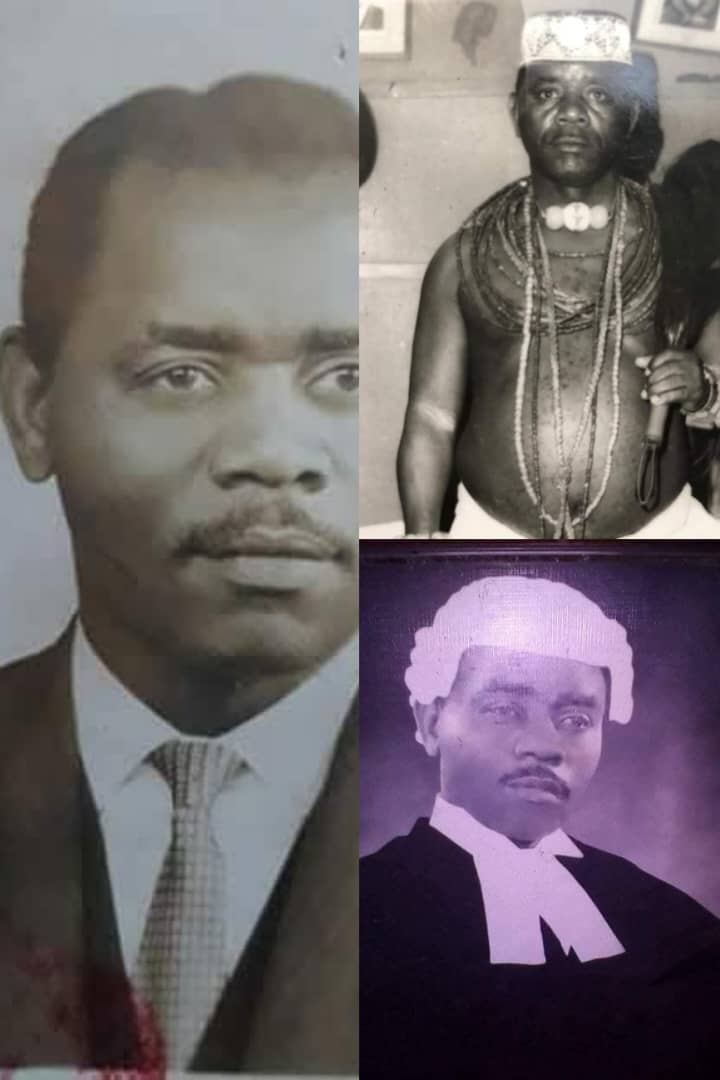
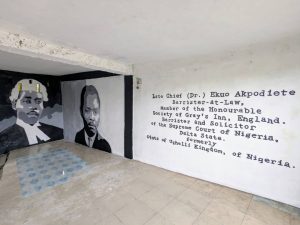
In a life of achievement, Chief Ekuogbe Akpodiete popularly called the Duke by his contemporaries in the UK was an assessment clerk, post office clerk, a court interpreter, an educationist, a business man, a political party chieftain, a Barrister and Solicitor, a Magistrate, the Otota (the Prime Minister) of Ughelli kingdom which is the highest traditional chieftaincy office that underpin the royal office of the Ovie of Ughelli Kingdom.
He was a trail blazer, a strict disciplinarian, a lover of people, and a philantropist. He saw to it that people lived in peace and happiness.
Born on the 4th of April, 1924, to parents cut from an industrious mould, Chief Ekuogbe Rowland Gregory Akpodiete took zealously to education that neither his mother Ughweriaka who was a trader, nor his father Akpodiete who was a farmer had.
He attended the Native Authority Primary School, Ughelli, and Enitona High School, Port Harcourt, for his secondary school education.
He thereafter had a brief teaching career in primary schools in Ofuoma near Ughelli, he worked as a process clerk in the then Sapele Township Department between 1950 and 1953, serving at the same time as an interpreter in the local courts.
He proceeded to the United Kingdom to seek the proverbial Golden Fleece where he worked and paid his way through, studying Law. He was admitted into the Honourable society of Gray’s Inn, England, in 1965, and shortly after, he returned home to Nigeria and attended the Nigerian Law School. He was called to the Nigerian Bar in 1966. He immediately started practice in Lagos. However, his practice in Lagos was regrettably abridged by the Nigerian Civil War, which drove him to his hometown Ughelli in 1967, where he continued to practise among his kith and kin as the first Legal Practitioner.
Chief Ekuogbe Akpodiete established himself in Ughelli. After the civil war, he served in the now defunct Mid-western State Judiciary from 1972 to 1975 as a Magistrate.
He was conferred with the chieftaincy title of Urhukperovie of Ughelli kingdom (the light of the King) by the then reigning Ovie of Ughelli, His Royal Highness Oharisi II of blessed memory in 1977.
In the quest for more knowledge, he went back to England for his Master’s degree in law (LL.M) and later a Ph.D. at the University of Warwick.
He was awarded an honourary doctorate degree (Ph.D) by Tenesse Christian University from the United States of America in 1991.
He became the Otota (the Prime Minister) of Ughelli Kingdom in 1986, an office he occupied until his demise on 9th April 1995.
Chief Ekuogbe Akpodiete was also politically involved. In the heady days of the Awolowo-led Unity Party of Nigeria, he was the party’s legal adviser in Ughelli and was on hand to assist during Chief Obafemi Awolowo’s campaign hosting in Ughelli and its environs.
In view of his love for people and entertainment, he established a popular cinema house, one of the first in Ughelli, known as REGA cinema, coined from his names, alongside an entertainment place called Unutakunu (people talk to people).
Chief Ekuogbe Akpodiete was blessed with wives and many children, grandchildren, and great grand children.
Mr. Olotu Akpodiete, PhD
Executive Director
Olotu & Ekuogbe Rowland Akpodiete foundation
-
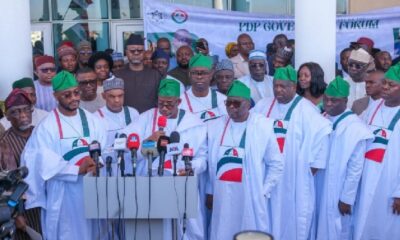
 News17 hours ago
News17 hours agoPDP governors declare support for Tinubu
-

 News20 hours ago
News20 hours agoEx-finance minister rearrested in new fraud probe
-
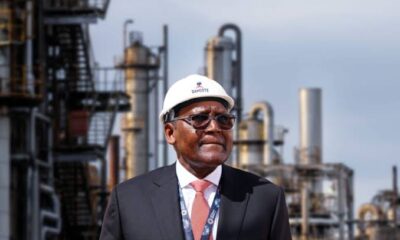
 News18 hours ago
News18 hours agoHope for Nigerians as Dangote refinery slashes petrol price again
-
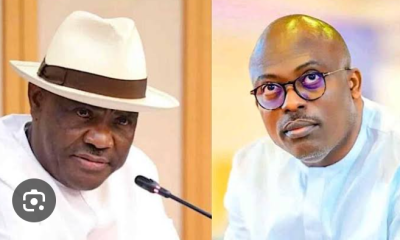
 News20 hours ago
News20 hours agoFubara: How can I forgive somebody who never requested for it– Wike
-

 News22 hours ago
News22 hours agoAlleged Se3ual Harassment: Natasha Declines Out-Of-Court Settlement Proposal By Akpabio’s Counsel
-

 News18 hours ago
News18 hours agoRivers Emergency Rule: Abbas inaugurates 21-member panel
-

 News17 hours ago
News17 hours agoN1.3trn CBEX Scam: EFCC caution Nigerians against Ponzi Schemes
-
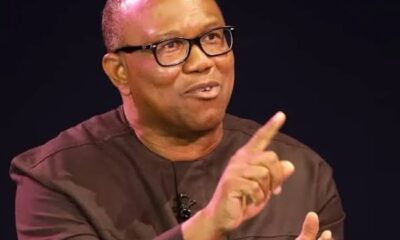
 News19 hours ago
News19 hours agoPeter Obi asks president Tinubu to suspend France trip


